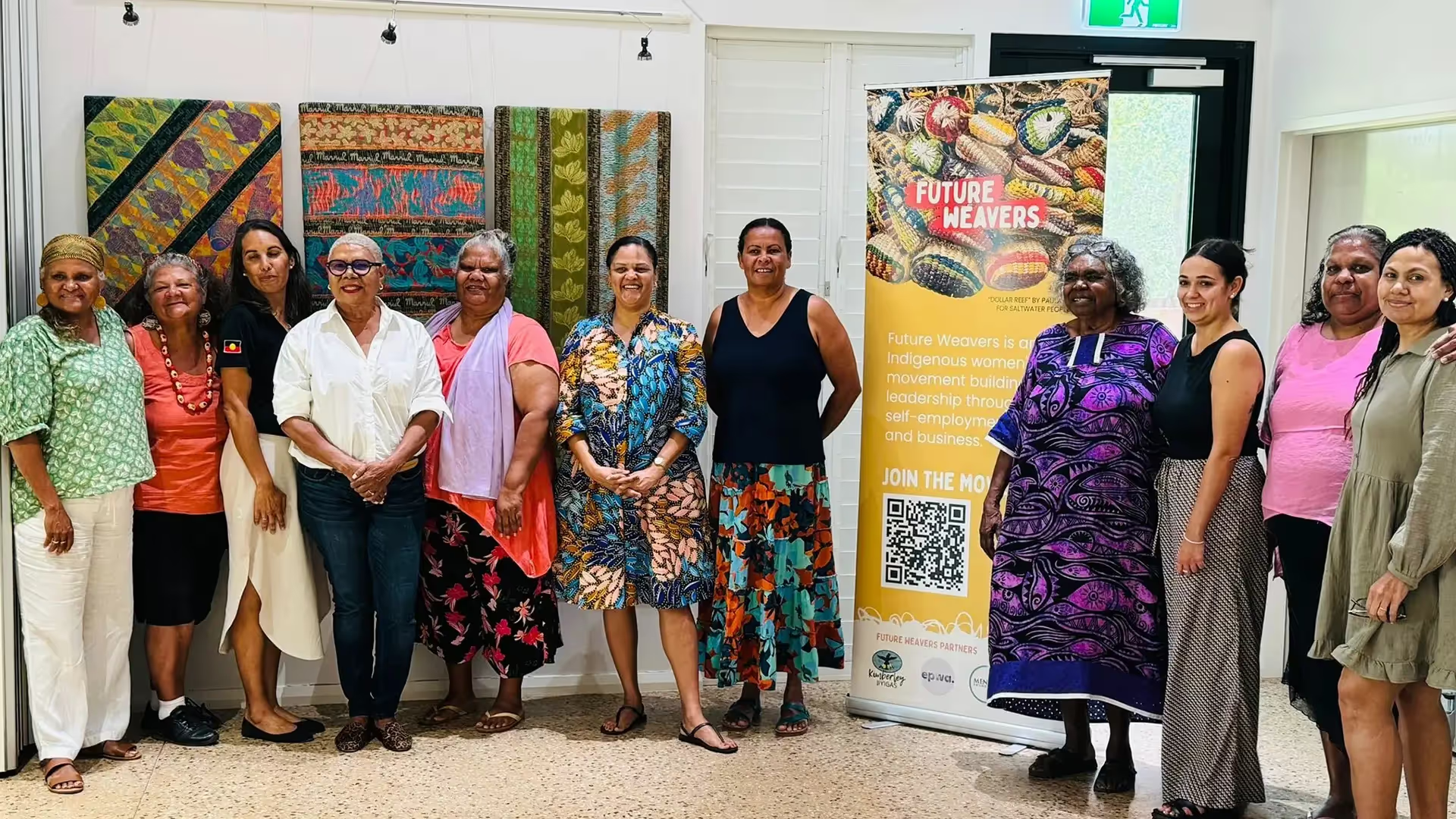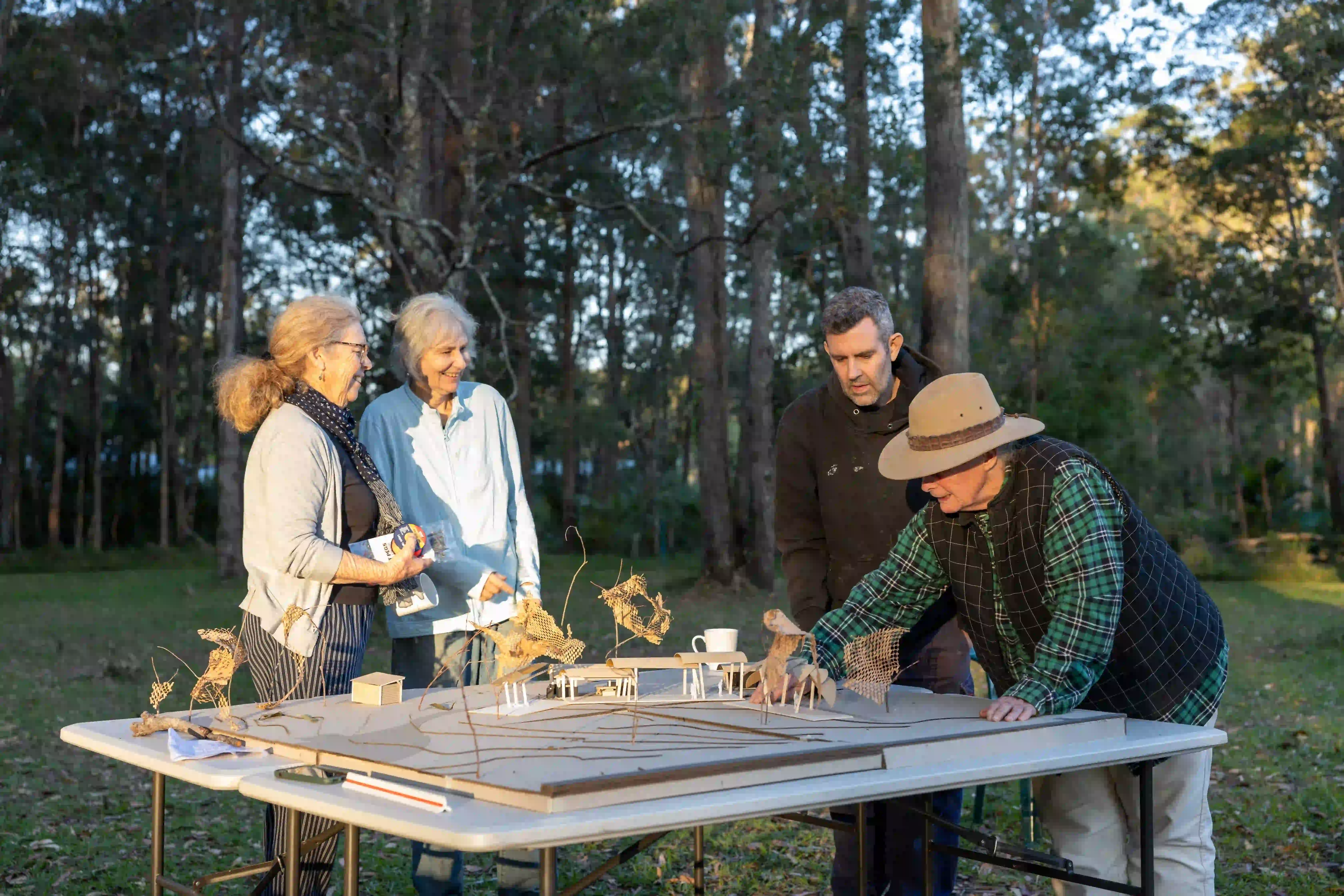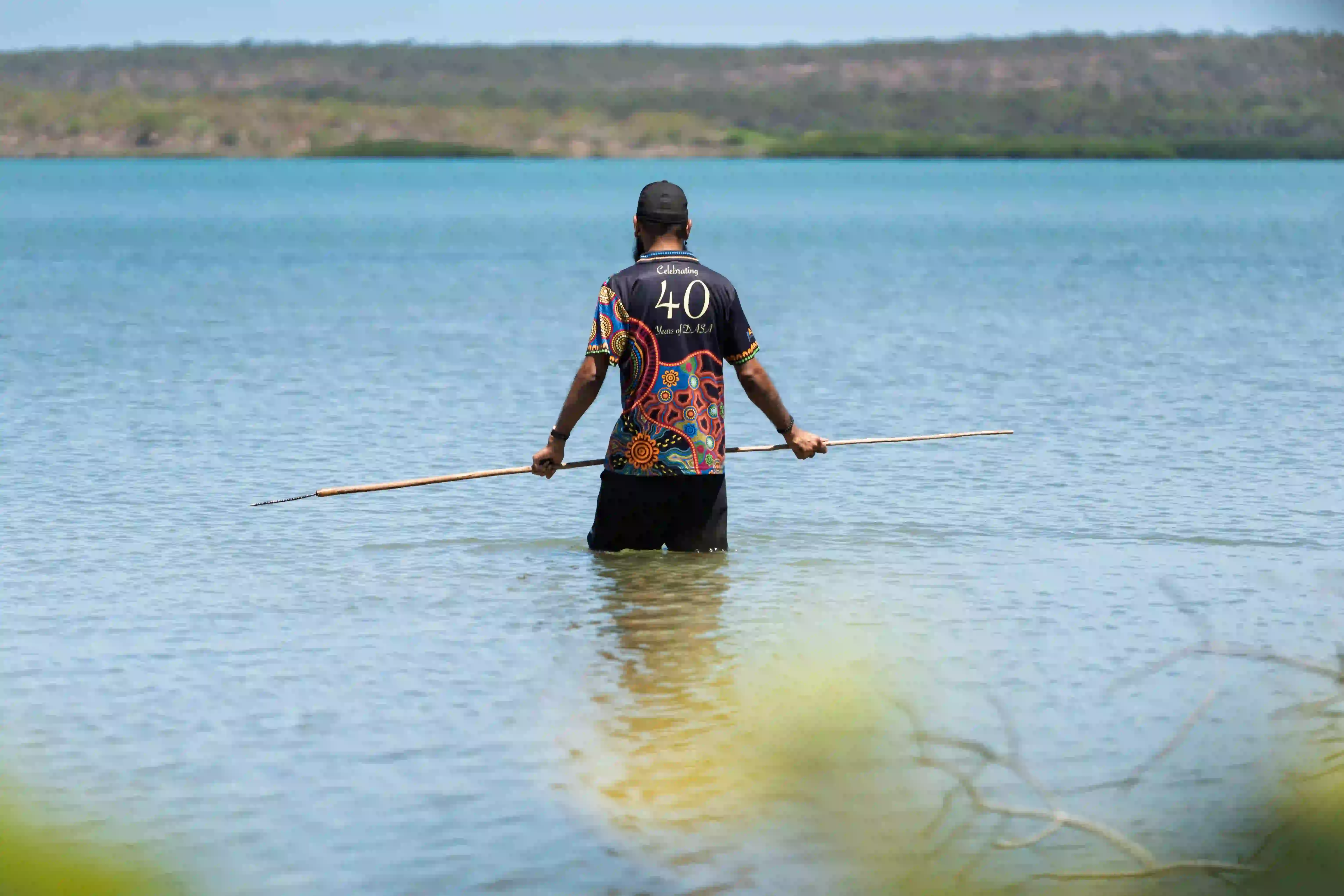Doing business in Northern Australia comes with its challenges, but a group of women in the Kimberley region of Western Australia is building momentum to change the landscape for First Nations venturers.
Geographically the Kimberley is twice the size of Victoria, but with a population of only 40,000, the huge distances and small market can create barriers to owning and operating a successful business. Margins are thin, costs are at least 15% higher than for businesses in Perth, and supply chains are vulnerable to seasonal weather and poor infrastructure.
Add to this list the ongoing impact of colonisation, intergenerational trauma, structural racism, limited availability of culturally appropriate and flexible funding, the inability to borrow against land owned under Native Title, and a capital sector designed through a white, western lens, and you begin to build a picture of the systemic barriers facing First Nations women with aspirations to start and grow businesses. And that’s before you include family, kinship, and cultural commitments.
It's unsurprising then that of the 2,400 businesses operating in the region, only ten per cent are Aboriginal-owned, despite First Nations people accounting for half the Kimberley’s population.
More than 100 of these Aboriginal-owned businesses belong to members of the Maganda Makers Business Club, all of which involve a level of cultural knowledge protection.
The Club, established in 2020 as a collaboration between Kimberley Jiyigas, Good Return and the Menzies Foundation with Enterprise Partnerships WA now on board as implementing partner, is made up of First Nations women entrepreneurs based in the Kimberley and spans geography and language groups. The Club provides the women with business support including mentoring, opportunities to network and share ideas, and access to business resources.
As Club Captain and Jaru woman Natasha Short says, “A lot can be achieved by sitting down with someone, having a cup of tea and talking about their aspirations.”
The Club is building wealth through business, but not just for the business owners. It’s well documented that Indigenous women-led business is unparalleled in terms of the social return it provides to the community. Motivated by more than money, the women in Maganda Makers understand business as a tool for ‘creating and sharing all sorts of value that goes beyond that which is counted in revenue and employment figures.’1
“We can create wealth to give to the children,” says club member Aunty Olive Knight, who works in her “dream job” as a cultural educator in her daughter’s tourism business.
In a recent report, which involved in-depth interviews with members of the Maganda Makers, entrepreneur, filmmaker, producer and writer Michele (Mitch) Torres shares a quote from Natasha Short who says, “For Indigenous women on Country business looks different—it is with family, it is seasonal, it is several different ‘businesses’ often at the same time, it is also in a unique context of also having strong community commitments and raising children.”2
Kathleen Cox, who came to Maganda Makers 18 months ago to connect with “like-minded women”, is a Club member and First Nations tourism entrepreneur.
“We are the matriarchs, mothers, carers and nurturers,” says Katheleen. “[Having a business] recharges our spirit to be strong for our family.”
She is the first of her generation involved in business, establishing her tourism business more than a decade ago. After a fire in 2007, Kathleen had to rebuild, accessing funding by navigating multiple, lengthy grant applications and small loan programs. And now her need is infrastructure to house family so they can live on Country and work with her.
“We want to be able to support ourselves,” she told Mitch Torres in the report, “Moving away from government welfare, and support for family who in turn will be workers.”
There are many stories of First Nations women’s business success like Kathleen’s. But as with Kathleen’s own story, the path has not been easy.
According to Mitch, the only true way to own the business is to get off the grant cycle.
“They make it hard (to access grant funding), ask us to applaud the breadcrumbs we’re given and then expect us to make a smorgasbord out of the breadcrumbs,” she says. Mitch advocates for fit-for-purpose funding that can see a business through the ups and downs of the first three years.
“The frustration of having to navigate systems is doing damage to our people,” says Natasha.
“Something has to change in structures, systems, change at a higher level, so that my daughters and granddaughters don’t have to have this same conversation.”
Together, the members of Maganda Makers are trying to shake up the system so their businesses, and those of the next generations, can thrive. In June 2023 PRF awarded a grant to Menzies Foundation to strengthen Maganda Makers Business Club, support them to share what they’ve learned with other Northern Australian venturers, and to develop an investment platform to sustainably support First Nations women’s entrepreneurship - a movement now known as Future Weavers.
At the recent Kimberley Indigenous Economic Development Forum in Broome, the Club launched its plans for the impact investment platform, the Tomorrow Fund, which will enable the Club members and women like them, who do not want to be beholden to philanthropy or government, to access a new kind of sustainable capital.
“We’re coming into our power,” says Natasha. “We’re doing it on our own terms.”
Ultimately Natasha implores government and other funders to listen to First Nations women, and support strong, motivated women.
“Trust them, trust their lived experience. Support the strong ones and have greater impact.”
______________________________
- Good Return and Kowa Collaboration, ‘Maganda Makers: Evaluative Review’, 2023
- Michele Torres, ‘The Ecosystems that Indigenous Women Entrepreneursin the Kimberley, work with, and within: A Case Study’, 2024







.png)



